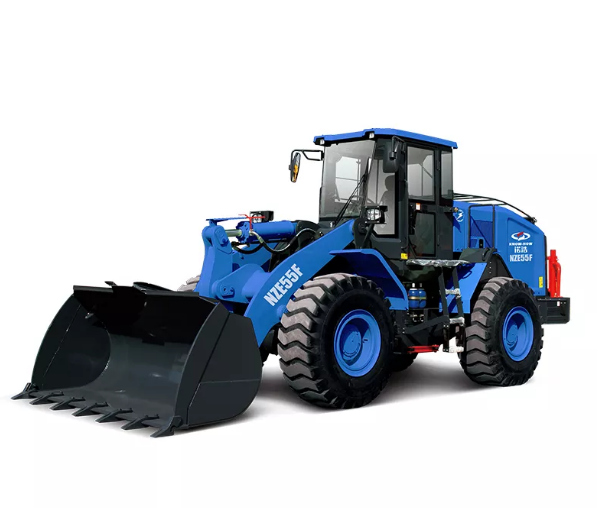Everything You Need to Know About Electric Wheel Loaders
Electric wheel loaders are a groundbreaking innovation in the heavy machinery industry, offering a cleaner and more sustainable alternative to traditional diesel-powered loaders. In this article, we will delve into the key features, advantages, and applications of electric wheel loaders, highlighting their role in reducing emissions and advancing eco-friendly construction and material handling operations.
Understanding Electric Wheel Loaders
Description: Electric wheel loaders are heavy equipment machines equipped with electric propulsion systems, powered by lithium-ion batteries or other electric sources.
Advantages:
Zero Emissions: Electric wheel loaders produce zero tailpipe emissions, reducing air pollution and improving air quality in construction and industrial settings.
Reduced Noise: Electric loaders operate quieter than their diesel counterparts, contributing to a more pleasant work environment and reduced noise pollution.
Energy Efficiency: Electric propulsion systems are highly efficient, resulting in lower energy consumption and operational costs over time.
Lower Maintenance: Electric loaders have fewer moving parts and require less maintenance compared to diesel engines, leading to reduced downtime and maintenance expenses.

Applications of Electric Wheel Loaders
Construction Sites: Electric wheel loaders are well-suited for various construction tasks, including material handling, site preparation, and loading/unloading operations.
Quarries and Mining: In quarrying and mining operations, electric loaders offer efficient and environmentally friendly material handling, contributing to sustainable resource extraction.
Warehouses and Logistics: Electric loaders are used in warehouses and distribution centers for efficient cargo handling and stockpile management.
Urban Development: Electric loaders are ideal for urban construction projects due to their quiet operation and emission-free capabilities, minimizing disruption to city residents.
Key Features of Electric Wheel Loaders
Battery Technology: Advanced lithium-ion battery technology provides sufficient power for extended operation while reducing the need for frequent recharging.
Regenerative Braking:Electric loaders often incorporate regenerative braking systems, which capture and store energy during braking, further enhancing energy efficiency.
Digital Connectivity: Many electric loaders are equipped with digital connectivity features that allow operators to monitor performance, energy usage, and maintenance needs in real-time.
Charging Infrastructure: The availability of charging infrastructure is a critical factor for the successful adoption of electric wheel loaders. Fast-charging stations are being established to facilitate convenient and rapid charging.
Considerations for Adopting Electric Wheel Loaders
Operational Requirements: Assess the operational demands of your projects, including load capacity, duty cycles, and work environments, to determine the suitability of electric loaders.
Charging Infrastructure: Evaluate the availability of charging infrastructure in your area and consider installing on-site charging stations if necessary.
Total Cost of Ownership: While initial purchase costs may be higher for electric loaders, consider the long-term savings in fuel and maintenance costs.
Environmental Impact: Adopting electric loaders aligns with sustainability goals and may contribute to achieving lower carbon emissions and environmental regulations.
Operator Training: Ensure operators are trained to effectively operate and maintain electric loaders, as they may have different characteristics compared to diesel equipment.
Comments
Post a Comment